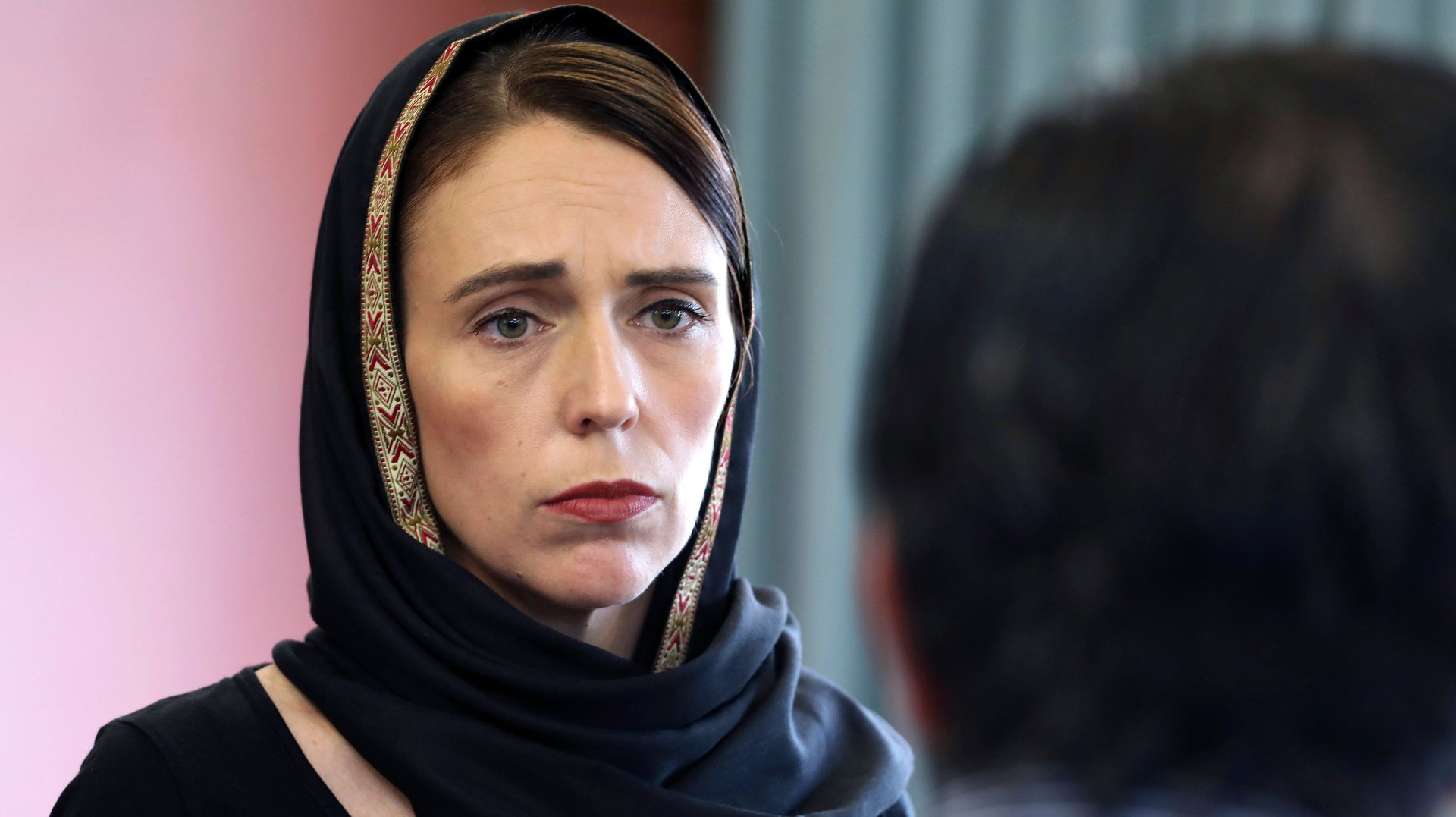New Zealand prime minister’s brave lesson on how to deny terrorists fame
New Zealand’s prime minister Jacinda Ardern scored a powerful victory against terror simply by refusing to say the Christchurch attacker’s name.


New Zealand’s prime minister Jacinda Ardern scored a powerful victory against terror simply by refusing to say the Christchurch attacker’s name.
In a speech before parliament on Tuesday (Mar. 19), she said she would never speak the name of the 28-year-old Australian man charged with opening fire at a two mosques and killing 50 people last week. She asked others to follow her example.
“We, in New Zealand, will give him nothing. Not even his name,” Ardern added.
When terrorists strike, the immediate damage—deaths, injuries, destruction—isn’t their ultimate goal. Their intent is far more ambitious, though intangible: They seek to cause terror, and for that, they need visibility.
Visibility supports the spread of terror. It makes terrorists look more important and powerful than they are, and provides a platform to their messages. It also encourages copycats to to embrace the same murderous ideals and seek similar exposure.
Few had heard of Al Qaeda, or Osama Bin Laden, before Sept. 11, 2001. Dzhokhar Tsarnaev, who with his brother set up the bombs that hit the Boston marathon in 2013, would have hardly had a fan following, let alone a Rolling Stone cover, before his attack. Anders Breivik, the Norwegian terrorist who in 2011 killed nearly 80 people, wouldn’t’ have become an inspiration for a generation of white supremacist terrorists—including the attacker of the Christchurch mosques—without the notoriety his heinous action generated.
Ardern’s decision not to name the perpetrator of the attack offers a blueprint on how to deal with terrorists—by deflecting the attention from the perpetrators towards the victims.
He sought many things from his act of terror, but one is notoriety. And that is why you will never hear me mention his name. He is a terrorist. He is a criminal. He is an extremist. But he will, when I speak, be nameless.
And to others, I implore you: Speak the names of the lives who were lost, rather than the name of the man who took them.